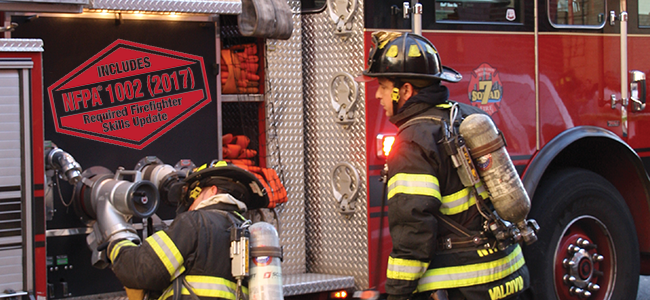
- Manager: KENNETH SMARR

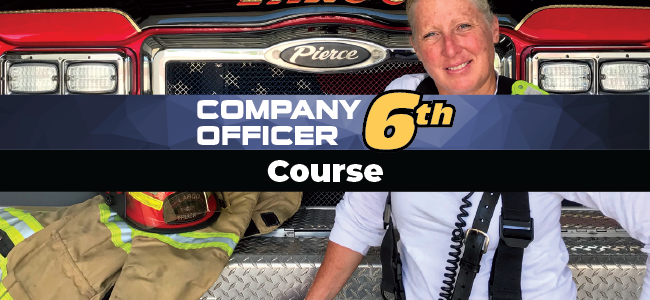
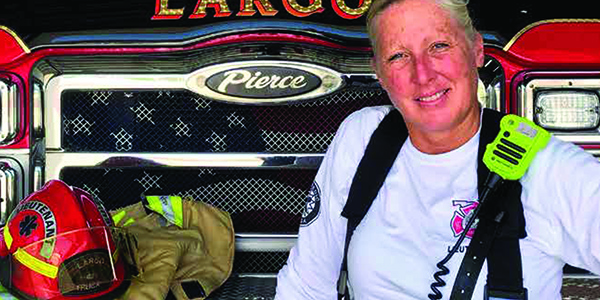
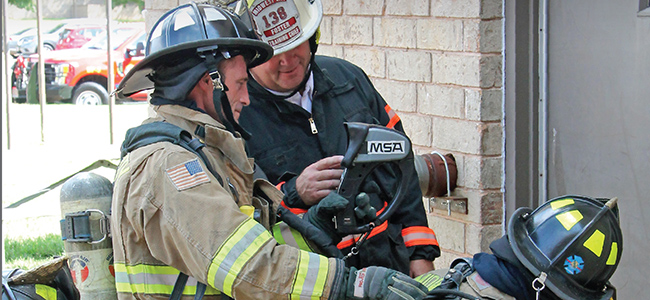
Instructor I course online with in person for orientation, skills practice, and final for written & skills.
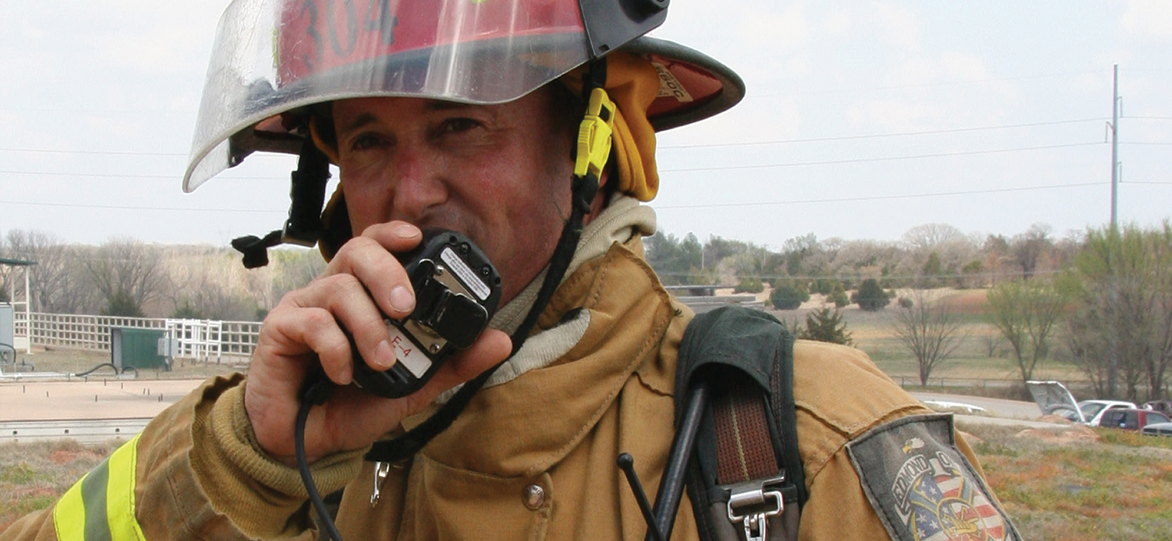
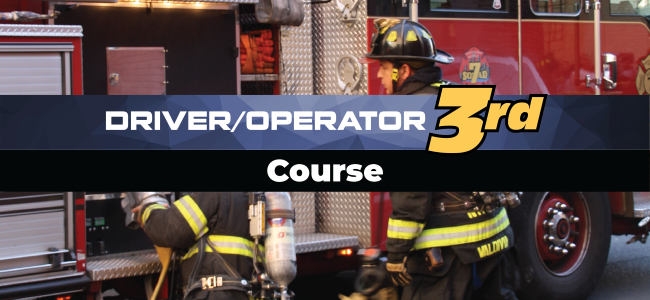
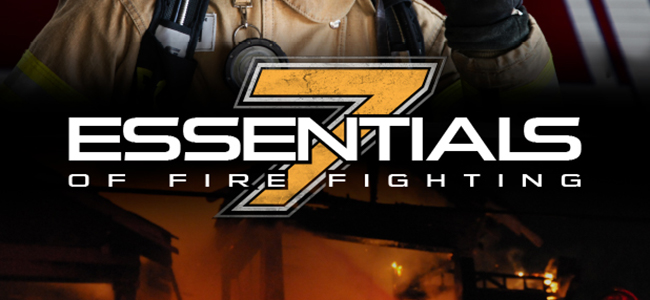
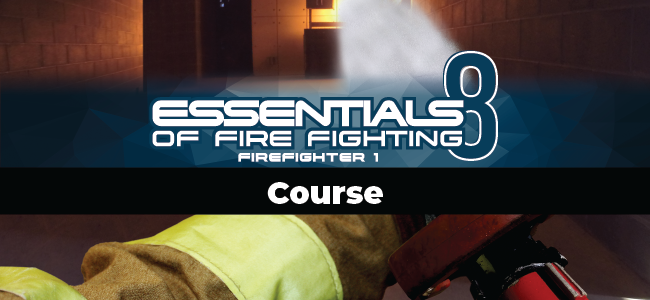
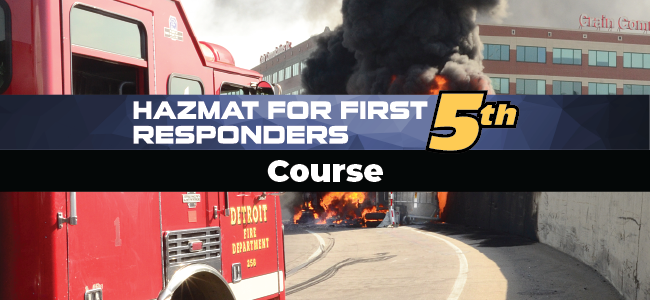
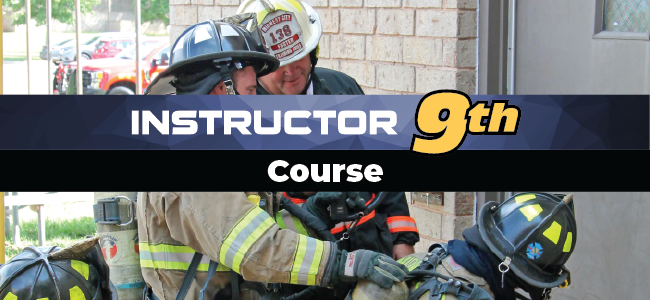
Instructor 1 course at Wabash Township Fire Department
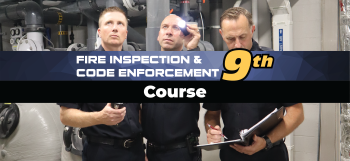

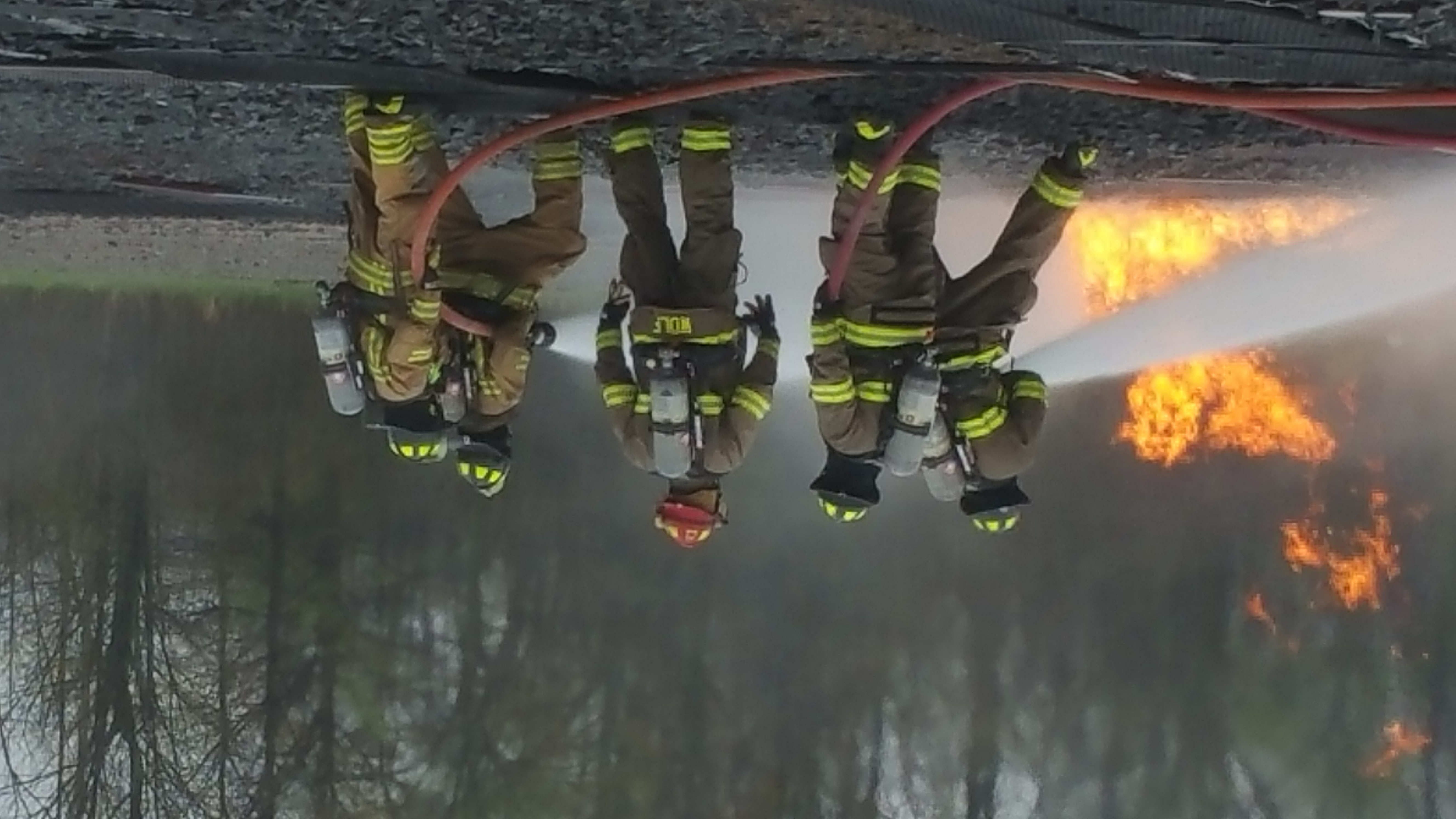
This is a 40-hour Basic ARFF Course that will instruct the students on basic Aircraft Rescue Fire Fighting skills as required by the FAA. By completing this course, the student will meet the basic requirements of FAR 139. 319 (i) / AC No: 150/5210-17C as required by the FAA & NFPA 1003 - Qualifications of an Aircraft Rescue Firefighter. This course will have both lecture and some hands-on instruction. Each day of class and will have 2 instructors for the course. This Course will be held 8 hours each day for 5 days. Students and / or sponsoring agency are responsible for textbooks and electronic software used for the course. Class will be using newest Aircraft Rescue Firefighting editions and curriculum, currently the IFSTA Aircraft Rescue and Firefighting 6th Edition Book but may change due to newer editions and curriculum. The requesting agency will be notified of any changes of book and curriculum changes by the lead instructor.
Goals: The goal of this course is that upon completion the student will have sufficient basic knowledge to apply skills and successfully perform basic Aircraft Rescue firefighting. Meeting these goals will accumulate into achieving the basic qualifications to meet the basic requirements for an aircraft rescue firefighter as set for by NFPA 1003 and FAR 139. 319 (i) / AC No: 150/5210-17C. The goal is to provide sufficient training and instruction such that firefighters can function well as part of a team.
Objectives: Initial training provided by each chapter will enable personnel to identify and interpret advanced theories, facts, concepts, principles, requirements, procedures, equipment, and components of ARFF. Trainees must also be able to apply these principles to the aircraft serving the airport and demonstrate all required tasks safely and accurately and in accordance with established procedures.
Completion of this course will provide the students with the fundamental knowledge and skills necessary to effectively manage and mitigate an aircraft emergency. Knowledge will be tested daily with quizzes on the chapters covered followed by a final exam on the final day of class. Students must pass the final exam by 70% to receive certificate.

IN Firefighter Driver Operator General and Pumper
May 2024 at Rensselaer FD
Course Description
Indiana Driver Operator General and Pumper: This class is designed prepare the firefighter for certification testing through classroom learning and hands on training. The student will be expected to read the assigned material before class. We will be handing out quizzes to be completed before class or using IFSTA Moodle. Although there will be classroom presentation, it will focus on information that can’t be covered out in the field. If you don’t understand something you read, the class will begin with a questions and answers session to try and answer those questions. Then there will be an opportunity to go over the quiz that was assigned. We will then discuss certain topics from the book as to how they may apply. The bulk of the time will concentrate on the skills, understanding what is expected, how to obtain the information, applying knowledge learned from the book and evaluating your work. You must attend all classes to be eligible to take the test. If you must miss a day, it is up to you to make up the material. It will be your responsibility to schedule time between you and an instructor to catch up.
Course Logistics
This class is based on the recently updated curriculum for Indiana Driver Operator certification. The book we will use is IFSTA Pumping and Aerial Apparatus Driver/Operator Handbook 3rd ed. You should be able to access an E book from your IFSTA account, so there will not be any hard copies available. Individuals or Fire Departments now may apply for free IFSTA eLibrary subscriptions via https://on.in.gov/ifsta-library-request. Each user must have an IFSTA ResourceOne account to access these publications. ResourceOne accounts can be created via https://moodle.ifsta.org/. Questions regarding the IFSTA eLibrary should be directed to Shelly Elliott.
We will be doing all the driving and such in and around Rensselaer. If several members attend from one department, you will be expected to provide a fire engine from your department. This will allow you to familiarize yourself with your own equipment and give us more than one piece of apparatus to use. Everyone will need to show a valid driver’s license prior to being allowed to participate in the hands-on portion.
Prerequisites
Driver’s licensee and Driver Operator General (for Driver Operator Pumper)
Dates All Times CST
May 1, 8, 15 - 6:00 pm to 10:00 pm
May 4, 5, 11, 12, 18, 19 - 9:00 am to 6:00 pm
Written test TBD
Instructors Evaluator
Fabian Martinez (219) 689-7118 Rob Grady (219) 644-9331
Will Sonntag (219) 712-0803
Matt Kodicek (219) 808-4230
George Humphrey (219) 608-4665
Driver Operator General
Weekday | 18:00-22:00 | Ch. 1- Types of Apparatus equipped with a pump | IFSTA Pumping and Aerial Apparatus Driver Operator pgs 10-25, 26-75 |
Weekday | 18:00-22:00 | Ch. 3- Apparatus Safety and Operating Emergency Vehicles | IFSTA Pumping and Aerial Apparatus Driver Operator pgs 76-131, 512-536 |
Weekend | 08:00-16:00 | Driving Course Skills/Written Test | Hands on Skills Days |
Driver Operator Pumper
Weeknight | 1800-2200 | Ch. 4- Positioning Apparatus |
Weeknight | 1800-2200 | Ch. 7- Theoretical Pressure |
Weekend | 800-1600 | Ch. 9- Fire Pump Theory |
Weeknight | 1800-2200 | Ch. 12- Relay Pumping Operations |
May 1, 8, 15 - 6:00 pm to 10:00 pm are lecture days
May 4, 5, 11, 12, 18, 19 - 9:00 am to 6:00 pm are skills days
May 4
Skills 2-1 to 2-9 and hopefully start some of the skill 3’s
May 5
Skills 3-1 to 3-5
15-1 to 15-5
May 11
Eval and start DOP skills
May 12
Skills 4-1 to 4-5 and 7-1
May 18
Skills 10-1 to 10-7
May 19 eval
IN FF DOG SKILLS
Skill # 2-1 | NFPA JPR# & Edition: 2014/2017 | Task: Clean the interior and wash and wax the exterior of a fire department apparatus |
Skill # 2-2 | NFPA JPR# & Edition: 2014/2017 4.2.1,4.2.2 | Task: Perform a routine walk-around maintenance inspection |
Skill # 2-3 | NFPA JPR# & Edition: 2014/2017 4.2.1,4.2.2, 4.3.7 | Task: Perform an in-cab operational inspection |
Skill # 2-4 | NFPA JPR# & Edition: 2014/2017 4.2.1 | Task: Test apparatus road and parking brakes |
Skill # 2-5 | NFPA JPR# & Edition: 2014/2017 4.2.1, 4.2.2 | Task: Perform engine compartment inspection and routine preventive maintenance |
Skill # 2-6 | NFPA JPR# & Edition: 2014/2017 4.2.1 | Task: Charge an apparatus battery. |
Skill # 2-7 | NFPA JPR# & Edition: 1002 2014/2017 4.2.1, 4.2.2, 5.1.1, 5.1.2 | Task: Perform daily inspections for apparatus equipped with a fire pump. |
Skill # 2-8 | NFPA JPR# & Edition: NFPA 1002, 2014 — 4.2.1, 4.2.2, 5.1.1; NFPA 1002, 2017 — 4.2.1, 4.2.2, 5.1.2 | Task: Perform weekly inspections for apparatus equipped with a fire pump. |
Skill # 2-9 | NFPA JPR# & Edition: NFPA 1002, 2014 — 4.2.2, 5.1.1; NFPA 1002, 2017 — 4.2.2, 5.1.2] | Task: Perform a hard intake hose service test. |
Skill # 3-1 | NFPA JPR# & Edition: NFPA 1002, 2014 and 2017 — 4.3.1 | Task: Start, idle, and shut down a fire service apparatus |
Skill # 3-2 | NFPA JPR# & Edition: NFPA 1002, 2014 and 2017 — 4.3.1, 4.3.6, 6.2.1, 7.2.2, 7.2.3 | Task: Drive a fire service apparatus |
Skill # 3-3 | NFPA JPR# & Edition: NFPA 1002, 2014 and 2017 — 4.3.2, 4.3.3, 4.3.4, 4.3.5, 6.2.1, 7.2.1, 7.2.3 | Task: Back apparatus using mirrors |
Skill # 3-4 | NFPA JPR# & Edition: NFPA 1002, 2014 and 2017 — 4.3.2, 4.3.3, 4.3.4, 4.3.5, 4.3.6, 6.2.1, 7.2.1, 7.2.3 | Task: Perform various driving exercises |
Skill # 3-5 | NFPA JPR# & Edition: NFPA 1002, 2014 and 2017 — 4.3.1, 7.2.2 | Task: Perform various road tests in a fire service apparatus |
Skill # 15-1 | NFPA JPR# & Edition: NFPA 1002, 2014 — 4.2.2, 5.1.1; NFPA 1002, 2017 — 4.2.2, 5.1.2 | Task: Perform an engine speed test |
Skill # 15-2 | NFPA JPR# & Edition: NFPA 1002, 2014 — 4.2.2, 5.1.1; NFPA 1002, 2017 — 4.2.2, 5.1.2 | Task: Perform a vacuum test |
Skill # 15-3 | NFPA JPR# & Edition: NFPA 1002, 2014 — 4.2.2, 5.1.1; NFPA 1002, 2017 — 4.2.2, 5.1.2 | Task Prepare the pumper and complete a performance test of a fire pump including the priming system, pumping overload, and pressure control tests |
Skill # 15-4 | NFPA JPR# & Edition: NFPA 1002, 2014 — 4.2.2, 5.1.1; NFPA 1002, 2017 — 4.2.2, 5.1.2 | Task Perform discharge gauge and flowmeter operational tests. |
Skill # 15-5 | NFPA JPR# & Edition: NFPA 1002, 2014 — 4.2.2, 5.1.1; NFPA 1002, 2017 — 4.2.2, 5.1.2 | Task Perform a tank-to-pump flow test |
IN DOP SKILLS
Skill # 4-1 | NFPA JPR# & Edition: NFPA 1002, 2014 — 5.2.1, 5.2.2, 5.2.4; NFPA 1002, 2017 — 5.2.4, 5.2.5, 5.2.7 | Task: Position pumper and make large diameter intake hose connections |
Skill # 4-2 | NFPA JPR# & Edition: NFPA 1002, 2014 — 5.2.1, 5.2.2, 5.2.4; NFPA 1002, 2017 — 5.2.4, 5.2.5, 5.2.7 | Task: Position pumper and connect to 2½-inch (65 mm) hydrant outlets. |
Skill # 4-3 | NFPA JPR# & Edition: NFPA 1002, 2014 — 5.2.1, 5.2.2, 5.2.4; NFPA 1002, 2017 — 5.2.4, 5.2.5, 5.2.7 | Task: Position pumper and make multiple intake connections from a hydrant. |
Skill # 4-4 | NFPA JPR# & Edition: NFPA 1002, 2014 — 5.2.1, 5.2.2, 5.2.4; NFPA 1002, 2017 — 5.2.4, 5.2.5, 5.2.7 | Task: Position pumper and make connections for a dual pumping operation. |
Skill # 4-5 | NFPA JPR# & Edition: NFPA 1002, 2014 — 5.2.1, 5.2.2, 5.2.4; NFPA 1002, 2017 — 5.2.4, 5.2.5, 5.2.7 | Task: Position pumper and make connections for a tandem pumping operation. |
Skill # 7-1 | NFPA JPR# & Edition: NFPA 1002, 2014 — 5.1.1, 5.2.1, 5.2.2; NFPA 1002, 2017 — 5.1.2, 5.2.4, 5.2.5 | Task: Test hose carried on fire department apparatus to determine friction loss. |
Skill # 10-1 | NFPA JPR# & Edition: NFPA 1002, 2014 — 5.2.1, 5.2.2, 5.2.4; NFPA 1002, 2017 — 5.2.4, 5.2.5, 5.2.7 | Task: Engage and disengage a power take-off (PTO).. |
Skill # 10-2 | NFPA JPR# & Edition: NFPA 1002, 2014 — 5.2.1, 5.2.2, 5.2.4; NFPA 1002, 2017 — 5.2.4, 5.2.5, 5.2.7 | Task: Engage and disengage a pump |
Skill # 10-3 | NFPA JPR# & Edition: NFPA 1002, 2014 — 5.2.1,; NFPA 1002, 2017 — 5.2.4 | Task: Perform pump operations from the apparatus water tank |
Skill # 10-4 | NFPA JPR# & Edition: NFPA 1002, 2014 — 5.2.1; NFPA 1002, 2017 — 5.2.4 | Task: Make the transition from the apparatus water tank to an external pressurized water supply |
Skill # 10-5 | NFPA JPR# & Edition: NFPA 1002, 2014 — 5.2.1; NFPA 1002, 2017 — 5.2.4 | Task: Operate from a pressurized water source |
Skill # 10-6 | NFPA JPR# & Edition: [NFPA 1002, 2014 — 5.2.1, 5.2.2, 5.2.4; NFPA 1002, 2017 — 5.2.3, 5.2.4, 5.2.5, 5.2.7] | Task: Draft from a static water supply |
Skill # 10-7 | NFPA JPR# & Edition: [NFPA 1002, 2014 — 5.2.4; NFPA 1002, 2017 — 5.2.7]
| Task: Supply water to a sprinkler/standpipe system |

Indiana Fire District 8
Instructor II
Fall 2024
Lead Instructor: David Calvin Instructor: Ryan Fipps
Lead Evaluator: Tim Deckard Evaluator: Nick Kelp
Proctor: Jon Ramsey
Course Prerequisites: Instructor I and at least 20 hours of instructional or evaluation hours. In addition to the previous requirements, each student is expected to read text materials prior to the beginning of each class meeting as a quiz is always a possibility with a score at or above 70% will be expected.
Goal: The goal of this class is to provide Instructor II candidates with the knowledge and practical skills needed to obtain the State of Indiana Instructor II certification.
Objectives: Objectives are printed on the first page of each chapter within the IFSTA Fire and Emergency Services Instructor, 9th edition manual. Knowledge of each objective is the key component of obtaining information and competency to help in passing the State of Indiana Instructor II written and practical's.
Required Text: The required text for the course is IFSTA’s Fire and Emergency Services Instructor, 9th edition. While not required, the IFSTA’s Fire and Emergency Services
Instructor Study Guide is a valuable tool to help prepare for each lesson in the course and for the certification exam. Study guide is available in electronic copy.
Course Description & Purpose: After completing the course the student will have met the sections required for Fire Instructor II in the National Fire Protection Association® (NFPA®) 1041, 2018 edition, professional qualifications standard. Students who successfully complete the certification process including demonstration of all practical skills and achieving a written examination score of 70% or more will be certified as Instructor II by the Board of Firefighting Personnel Standards and Education.
Course Length: 48 hours recommended: 30 hours classroom, 8 hours practical demonstration, 7 hours practical skills evaluation, and 3 hours for final state written exam.
Preparation for Skill Sessions: Instructor II candidates are expected to come to each classroom well prepared. Reading of course material is essential in the success of this course.
Assignments: There will be assigned reading from the course online handbook each class period. You are expected to read class material PRIOR to the next class and possibly quizzed on material.
Quizzes: Quizzes will use multiple-choice, true-false, short answer, and essay questions, and possibly case studies. Occasionally quizzes are developed by the instructor for the class and geared towards helping student knowledge of class and practical material.
Written Exam: The State of Indiana exams are multiple-choice and a limited number of true-false questions. Occasionally there will be review sessions offered to help in preparation for the exam.
The teaching and learning processes during this course include lecture and discussion, practical skill sessions, and scenarios. Both in and out of classroom experiences are used to further enhance instructor experience. This course is based on a community-learning environment, where everyone participates and takes responsibility for the success of both individuals and the class as a whole.
Class participants shall complete the following presentations, quizzes and practice exams from the IFSTA Resource One website by the end of the week posted below.
Class Time: Wednesday(s) 1830-2200 hours and/or Saturdays 0830-1700 hours.
Date | Chapter | Chapter Title | Text Reference | Skill Sheets |
August 14 (Wednesday) | Class orientation and Resource One refresher | |||
11 | Lesson Plan Development | pp. 213-245 | 11-1 to 11-11 | |
August 24 (Saturday) | DUE Skills 11-1 thru 11-6 | |||
15 | Instructor & Class Evaluations | pp. 319-328 | 15-1 and 15-2 | |
12 | Training Evolution Supervision | pp. 247-261 | 12-1 | |
September 7 (Saturday) | DUE Skills 11-7 thru 11-11, and 15-1 | |||
Record | Present skill 11-11 and complete skill 15-1 | |||
13 | Test Item Construction | pp. 263-289 | 13-1 to 13-2 | |
September 21 (Saturday) | DUE Skills 13-1, 13-2 and 15-2 | |||
14 | Supervisory & Administrative Duties | pp. 291-318 | 14-1 to 14-3 | |
Prep for increased hazard exposure training | ||||
October 5 (Saturday) | DUE Skill 12-1 | |||
Increased hazard exposure training | ||||
DUE Skills 14-1 thru 14-3 presentations and findings | ||||
October 9 (Wednesday) | State Practical Exam and course/instructor evaluations | |||
Demarcation of Training vs Testing for the Skills Portfolio: The entity shall demonstrate that credit is not given for skills accomplished during training, class work, or other means outside the testing mode. Testing can be accomplished during the same time period as training if there is a distinct line between the training mode and the testing mode of that time period.
Code of Ethics: The personal code of ethics is a public statement by fire service educators and instructors that establishes clear expectations and principles to guide practice and inspire professional excellence. It is the belief of fire service instructors that commonly held set of moral principles and values can assist in the individual exercise of professional judgement.
Those moral principles and values are the core values of the teaching profession as well as the fire service. The individual instructor should integrate these values into the professional and private lives to ensure the equity of their actions and decisions.
Skills: There are 19 skill sheets in the course. The skill applications are designed to apply the concepts and skills in chapters 11-15. The skill applications may be stations where an instructor provides coaching and demonstration, and an individual skill is performed. The skill applications are described below.
Skill Sheet 11-1: Create a lesson plan.
Skill Sheet 11-2: Write a learning objective.
Skill Sheet 11-3: Create a lesson outline.
Skill Sheet 11-4: Create an information sheet (handout).
Skill Sheet 11-5: Create a skill sheet.
Skill Sheet 11-6: Create a worksheet.
Skill Sheet 11-7: Create a study sheet.
Skill Sheet 11-8: Create an assignment sheet.
Skill Sheet 11-9: Create a lesson plan evaluation.
Skill Sheet 11-10: Evaluate and revise a prepared lesson plan.
Skill Sheet 11-11: Conduct a class using a lesson plan created by the Level II Instructor candidate.
Skill Sheet 12-1: Supervise multiple instructors and candidates during an increased hazard exposure training.
Skill Sheet 13-1: Develop test items.
Skill Sheet 13-2: Develop a performance skills evaluation.
Skill Sheet 14-1: Select resources, staff and facilities for specific instructional sessions.
Skill Sheet 14-2: Perform a needs analysis for training resources
Skill Sheet 14-3: Maintain and secure accurate training records so that all agency and legal requirements are met.
Skill Sheet 15-1: Administer a Level I instructor performance evaluation
Skill Sheet 15-2: Develop class evaluation forms.
Practical Skills Competency Profile
Instructor II Topics for Presentation: The instructor II candidates will choose a topic related to fire department training for its crew and officers. It is important to avoid having presentations of the same topics presented in the same course. Your training topic might be part of a progression such as small engines, ladders that leads to ventilation training. Your topic will be one part of that sequential training should you choose. Remember there is a 15-minute classroom presentation with a skill demonstration and evaluation.
Have at least a couple ideas for the first evening of the class. We will take time to discuss and decide on topics that evening. If we have topics that could be part of a sequential training, we will get together in small groups for 15 minutes to discuss ideas. Realize, you have to complete your own work.
As a Fire Service Instructor, you shall:
• Place safety and learning of the student above all other concerns.
• Nurture the intellectual, physical, emotional, social, and civic potential of each student.
• Create support, and maintain a challenging learning environment for all students.
• Apply your professional knowledge and skills to promote student learning at all times.
• Establish and maintain a clear set of standards for behavior and civility within the learning environment.
• Be a positive role model by displaying those habits of mind and work necessary to develop and apply knowledge while simultaneously displaying a courtesy and enthusiasm for learning.
• Strive to affirm the importance and the honor of the profession.
• Conduct both personal and official business in a manner that will inspire confidence and respect of others.
• Never be disrespectful of others in public and private.
• Be committed to your own learning and professional growth in order to further develop in the teaching profession and the fire service.
• Collaborate with colleagues and other professionals in the interest of student learning.
• Recognize cultural and linguistic heritage, gender, family, community, ethnicity, and race and their influences on experience and learning.
• Make decisions and take all actions based on the moral and ethical values of this state and this organization.

May 2024 Eastex Fire Department Captain's Examination

May 2024 Eastex Fire Department Captain's Examination


